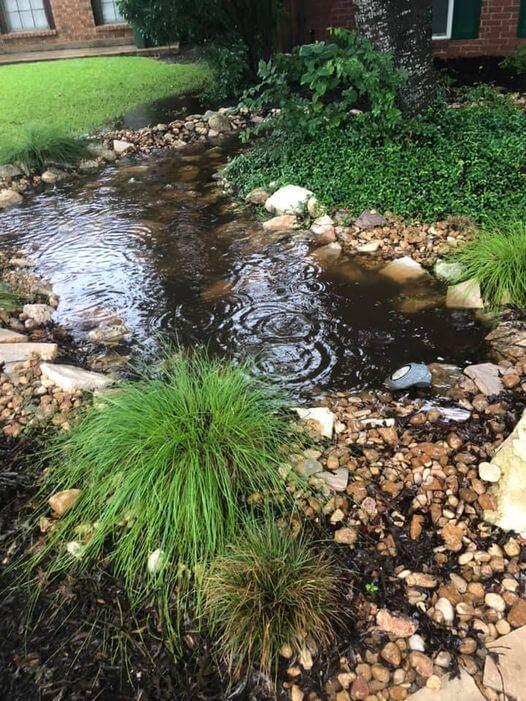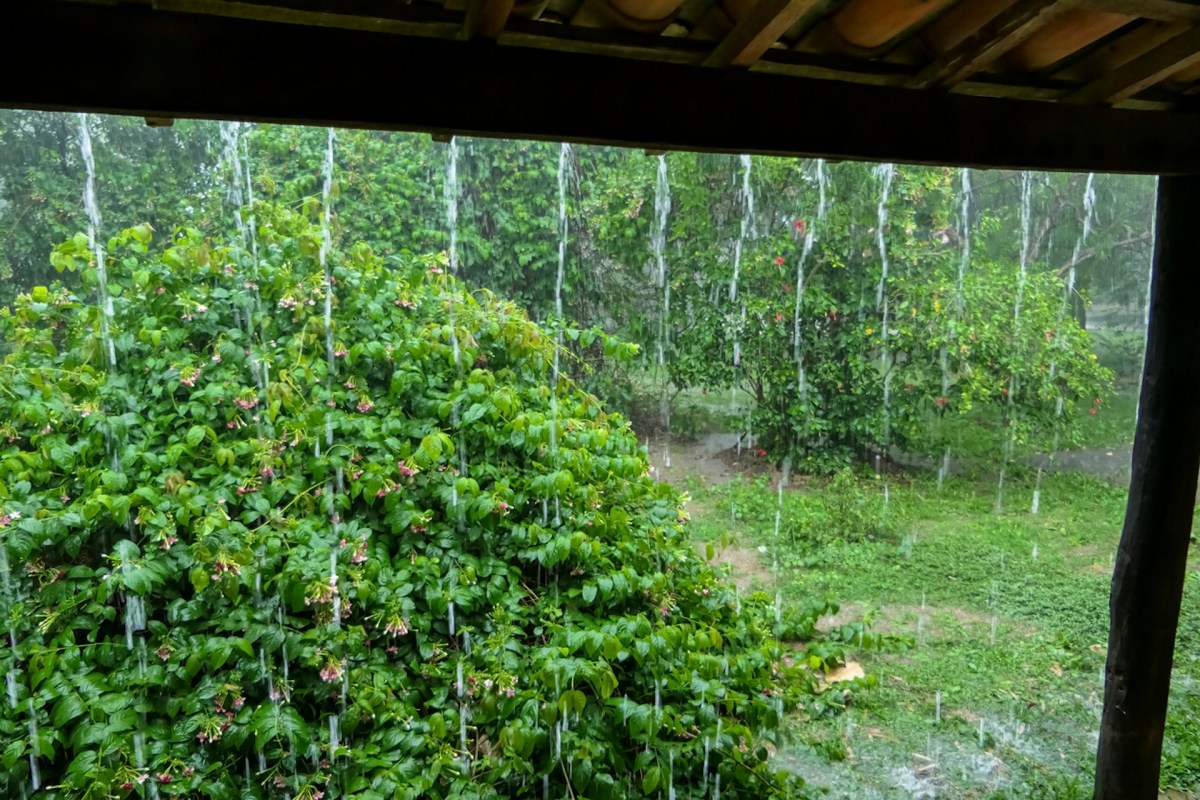A homeowner posted a photo on Reddit showcasing the power and beauty of their rain garden. The photo shows a small pond-like landscape surrounded by rocks, which plays a key role in protecting the lawn from flooding.
"Our Beautiful & Functional Rain Garden – saves our butts every time with drenching rain," wrote the Redditor, who shared the photo in the r/sanantonio subreddit.

"This is beautiful! I haven't seen many of these around San Antonio, but perhaps they are normally dry by the time I'm nearby," commented one Redditor.
"As beautiful as this looks, a lot of professional skill and thought went into the design and placement," wrote the Redditor who shared the photo.
Rain gardens are an effective and aesthetically pleasing solution for preventing flooding in regions with heavy rainfall. By trapping the excess water, rain gardens help the water drain into the soil, replenishing the surrounding landscape.
To create a rain garden in your yard, identify a low-lying area prone to flooding. Then, plant native species that have deep roots. Water-loving plants, such as wildflowers, sedges, and shrubs, ensure the soil stays loose, helping the water seep deep into the ground.
Growing native plants in your backyard also supports the local ecosystem by providing an area for key pollinators and species to flock.
Rain gardens are also a cheaper alternative to a traditional lawn by saving money on water bills and are a low-maintenance way to treat stormwater runoff. They prevent water pollution, erosion, and habitat degradation by ensuring excess water is absorbed into the soil.
In addition to creating rain gardens, homeowners may consider replacing traditional grass lawns with native plants, clover, buffalo grass, or engaging in xeriscaping. These eco-friendly options offer significant benefits beyond flood prevention.
At the site of the water pool, some Redditors were skeptical. However, the homeowner reassured their doubts and explained how the rain garden functioned.
"A mosquito larva nursery, you mean?" commented one user.
"Nope, quite the opposite," responded the homeowner. "Instead of standing water from poor drainage, after it stops raining, the water sinks down into the soil. The picture shows 2 days of non-stop rain, and rain still in progress."
Join our free newsletter for easy tips to save more, waste less, and help yourself while helping the planet.









